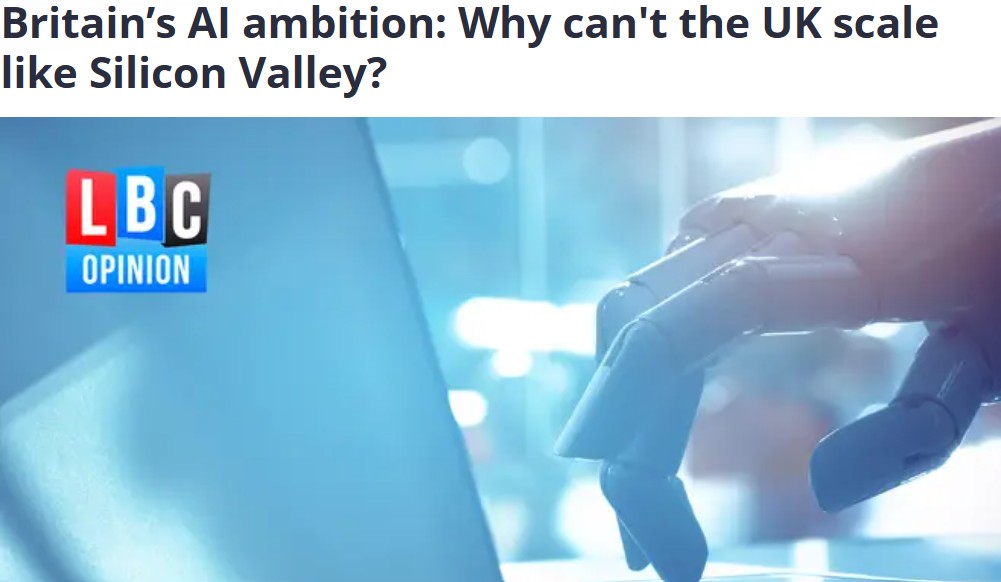Daniel´s op-ed in LBC News on 24 October 2025.
In September, US companies pledged $150bn of investments in the UK’s AI infrastructure, raising the age-old question of whether Britain can truly launch and scale technology businesses.
In 2009, Gordon Brown sent me to Silicon Valley to investigate how Britain could grow its tech industry. The project was supposed to last six months, but I stayed for two years. The conclusions I formed then remain applicable for the UK AI industry today.
The UK will struggle to scale AI companies unless four barriers are addressed.
Market size
The most important step is to build stronger trade deals with the EU and other regions to expand our market size and compete with the US. Differences of language, taxation, regulation, custom and practice make it far harder to start a company in Manchester and sell in Marseille, than is the case in Memphis and Manhattan.
Europe often needs a crisis to galvanise it into action, but it cannot depend on ‘assured access’ for artificial intelligence. AI is already at the heart of many business and government processes. Imagine if the provider of a vital technology suddenly made it unavailable.
Polls show that most Brits now think it was wrong to vote to leave the EU, but our focus now should be on creating a more favourable environment for businesses. Rejoining the customs union and the single market should be possible and priotised.
Capital
Large amounts of growth capital are needed for early-stage companies, and the US has far deeper pools of capital than Europe and the UK.
A 2024 McKinsey study found that as a percentage of GDP, venture investment in the US was four times higher than in Europe, including the UK: 4.9% compared with 1.3%.
The UK government is taking positive steps. In May, Chancellor Rachel Reeves secured agreements from pension funds covering 90% of the market, that by 2030 they will invest 10% of assets in private markets, including unlisted companies. She is also pushing multi-employer pension funds and local government pension funds to pool assets above £25bn, enabling sizeable commitments to private companies. We are yet to see what the Autumn Budget may bring.
Culture
The UK and the US are two cultures divided by a common language. Americans are generally less risk averse and more entrepreneurial.
This shows up in networking: Americans are more adventurous and comfortable with that may go nowhere. Brits often worry that a failed introduction reflects badly on them. When coaching entrepreneurs, I push them to ask for more introductions than they find comfortable.
Access to entrepreneurs
The US has had generations of serial tech entrepreneurs who reinvest fortunes into new ventures. The UK lacks this virtuous flywheel. British counterparts tend to back hedge funds and property.
Raising the limit on the Seed Enterprise Investment Scheme would ncourage individuals to invest in very early-stage UK companies. Investors receive up to 50% income-tax relief, but are capped at £200,000 per year. They can invest more via angel portfolios but that leaves them distant from founders. Serial entrepreneurs want to roll up their sleeves and help directly.
If the UK reduced these four barriers, it could create significant wealth and reduce dependence on a worryingly unreliable ally.
_____________
Dr. Daniel Hulme is a globally recognised expert in Artificial Intelligence (AI) and investor in emerging technologies and CEO and co-founder of Conscium.




